Experience the Mount Toubkal Ascent Express Trek in Morocco
Climbing Mount Toubkal in just two days might sound ambitious, but this tour packs a lot of adventure, breathtaking scenery, and local flavor into a surprisingly manageable schedule. Designed for those with a moderate level of fitness, the trek offers a great mix of challenge and reward — plus the chance to see some of Morocco’s most iconic landscapes.
What we love about this experience? First, the expert guidance from knowledgeable local guides who know the terrain inside out. Second, the stunning vistas — from the summit views across the Atlas to the sunrise over the Sahara. Third, the authentic Berber hospitality at the refuge, which really adds a personal touch to the trip. One thing to consider? The trek is physically demanding, especially at high altitude, so some level of fitness is essential. This journey is perfect for adventurous travelers seeking a memorable mountain experience without technical climbing.
- Key Points
- What Makes the Toubkal Trek Stand Out
- The First Day: From Marrakech to the Mountain Refuge
- The Second Day: The Summit Sunrise & Return
- Guides and Support: Making the Difference
- Food and Accommodation: Simple, hearty, and local
- Transport and Logistics: Smooth and Hassle-Free
- Practical Tips for a Successful Trek
- Who Is It Best For?
- FAQ
- More 1-Day Tours in Atlas Mountains
- More Tour Reviews in Atlas Mountains
Key Points
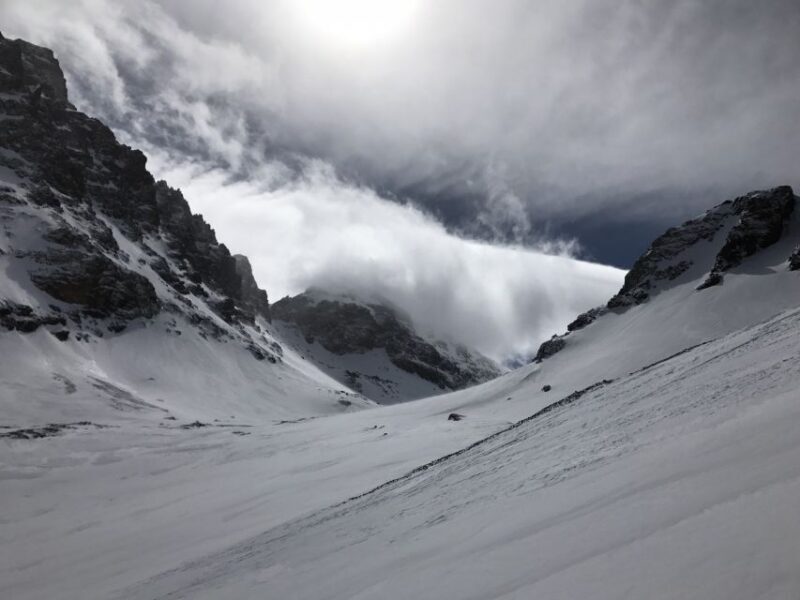
- Quick but rewarding: Conquers North Africa’s highest peak in just 2 days.
- Guided by locals: Expert guides ensure safety and cultural insights.
- Spectacular views: Sunrise summit views of Marrakech, Atlas, and Sahara.
- Authentic experience: Berber hospitality at the mountain refuge.
- Physical challenge: Suitable for fit walkers comfortable with altitude.
- Value for money: Includes transport, meals, guides, and accommodation.
What Makes the Toubkal Trek Stand Out
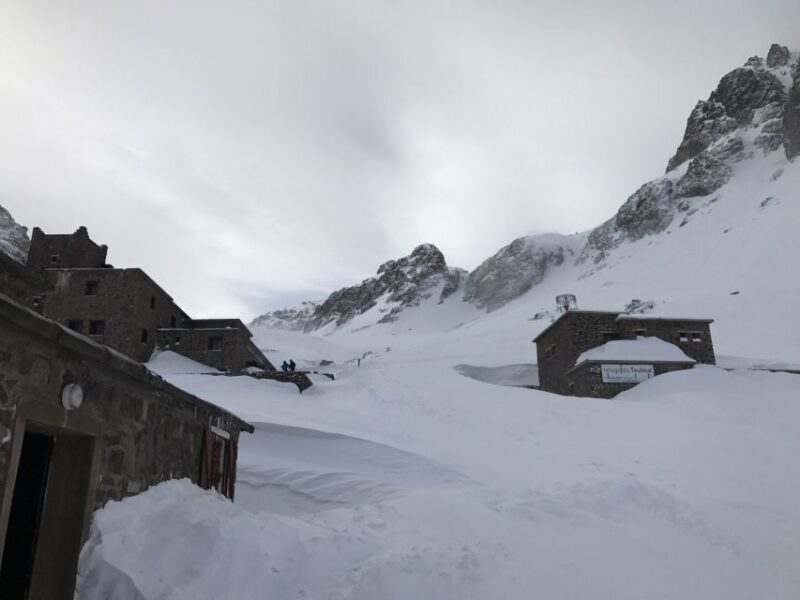
This tour is a solid choice if you’re looking to tick a major mountain off your bucket list with a short time commitment. The 2-day itinerary is carefully designed to maximize your experience, blending scenic trekking, culture, and the thrill of reaching North Africa’s highest point—at 4,167 meters.
Starting from Marrakech, the journey quickly shifts gears from city buzz to mountain tranquility. The drive to Imlil is scenic in itself, providing a taste of Moroccan mountain life before the trek begins. Once in Imlil, the walk starts through the lush Aït Mizane Valley, passing charming Berber villages, waterfalls, and traditional mountain scenery that keeps you engaged from the get-go.
Looking for more options in Atlas Mountains? We've reviewed plenty of other experiences.
The First Day: From Marrakech to the Mountain Refuge
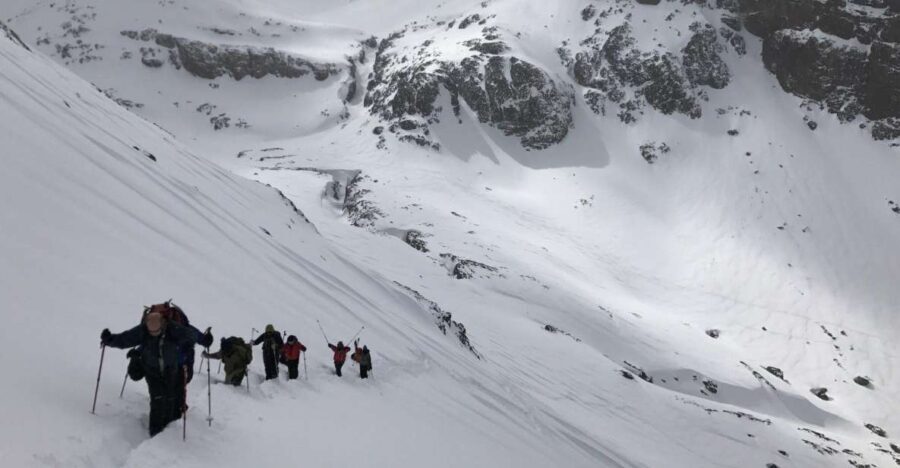
The initial trek is about 5 to 6 hours, covering a variety of terrains. You’ll pass through the village of Aremd and visit the shrine of Sidi Chamharouch, a spiritual spot for locals and visitors alike. The route offers a glimpse into Berber culture and lifestyle, making this more than just a walk — it’s a cultural journey.
The highlight of the first day is reaching the Toubkal Refuge, perched at 3,207 meters. The refuge is surprisingly cozy considering its altitude, with some reviewers mentioning that the accommodation exceeds expectations, especially given the remote location. The refuge becomes your base for the night, and you’ll enjoy hearty, simple local meals — often pasta, rice, and bread — prepared with care by a dedicated local cook. Many reviews praise the Berber hospitality and the warm atmosphere, which helps you relax after the day’s exertions.
Reviewer Lynsey mentions how impressive the refuge is “considering it’s at 3000m,” and highlights the filling meals and hot showers, which are a treat at that altitude.
The Second Day: The Summit Sunrise & Return
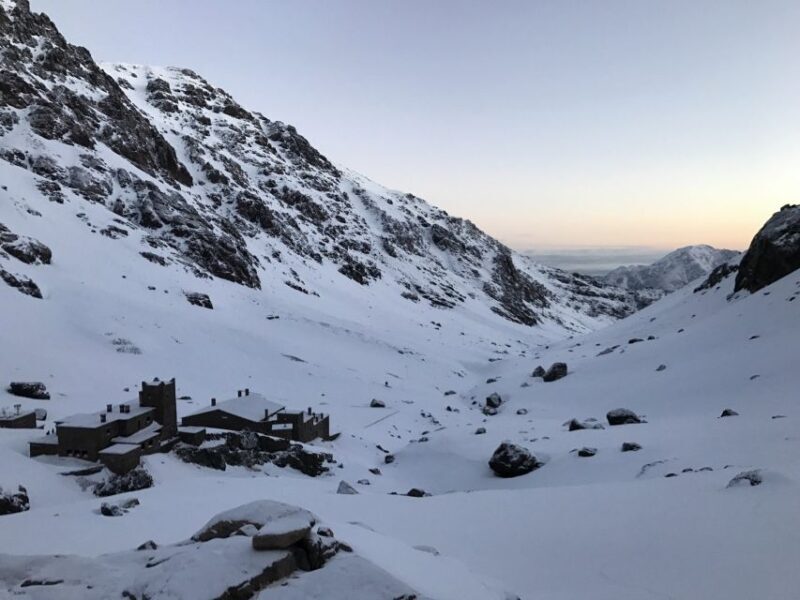
Waking early is essential on this tour. You set out around 3–4 am to reach the summit by sunrise, a moment many describe as unforgettable. The ascent involves crossing streams, rocky paths, and snow slopes (depending on the season). Some reviews note the use of crampons or a light ice axe may be helpful, especially from November to April, but the ascent is non-technical — just physically demanding.
From the top, you’ll be rewarded with breathtaking panoramic views: the lush valleys of Imlil below, Marrakech to the north, the vast Sahara to the south, and the surrounding Atlas mountains. Standing at the summit feels like touching the sky, and many reviewers describe it as an emotional highlight, with tears of joy and pride.
After soaking in the scenery, the descent is a long, steady walk back to the refuge, then downhill to Imlil, before the drive back to Marrakech. Total walking time on the second day is around 10 to 12 hours, including the summit climb and return.
Guides and Support: Making the Difference
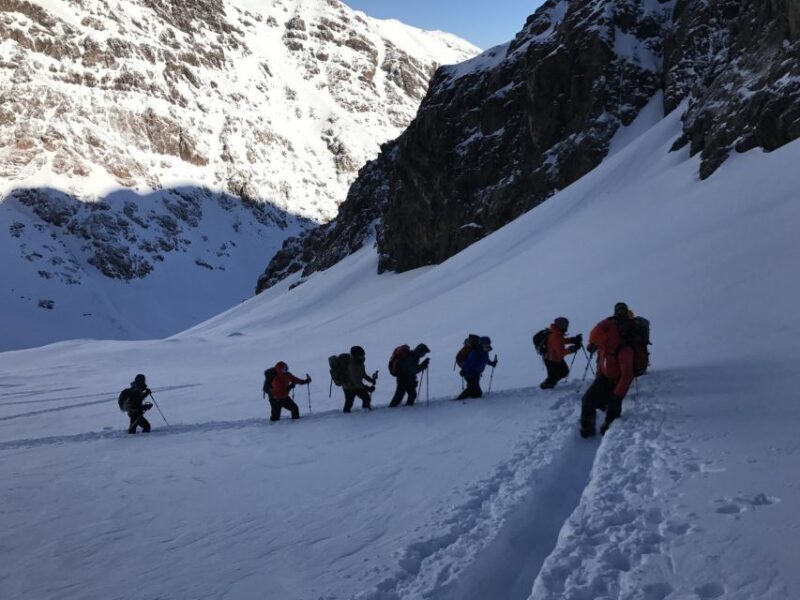
One recurring theme in reviews is how much guides enhance the experience. Guides like Youssef, Kamal, Mustafa, and Hussein are praised not only for their knowledge but also for their kindness, patience, and ability to motivate. Many mention how guides tailored the pace to suit the group’s fitness levels, kept everyone safe, and shared fascinating insights about the mountain and local culture.
Harry notes, “Our guides Youssef and Ayoub were very kind and just amazing,” while Lukas appreciates how Kamal made him feel safe and motivated. This personal attention makes a big difference when tackling a high-altitude trek.
More Great Tours NearbyFood and Accommodation: Simple, hearty, and local
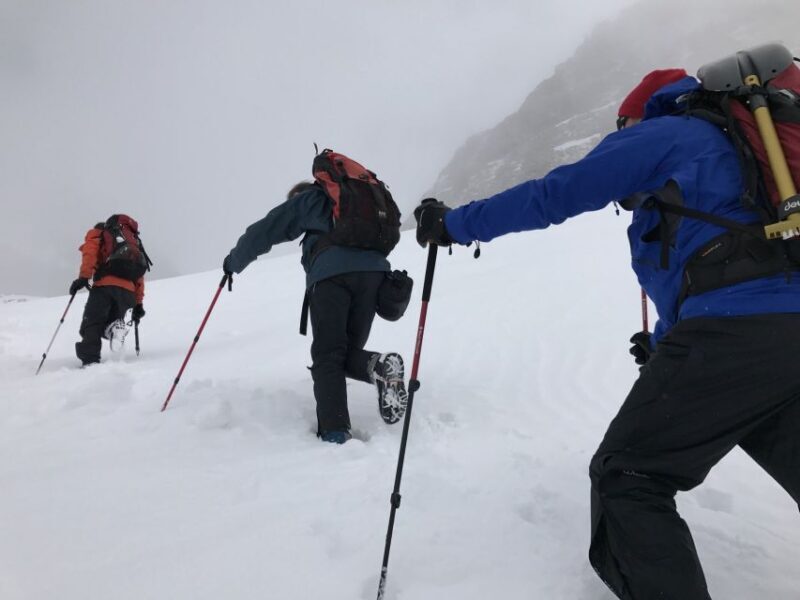
The included meals are basic but wholesome, featuring pasta, rice, bread, and local dishes, often prepared fresh by the mountain cook. Reviewers mention that the food is filling and offers the energy needed for the climb, with some noting snacks can be pricey on the way up, so bringing extra supplies is advised.
The refuge accommodations are surprisingly comfortable given the altitude and remote location. Many travelers appreciate the warm blankets, hot showers, and the social atmosphere created by fellow hikers sharing stories and photos.
Transport and Logistics: Smooth and Hassle-Free
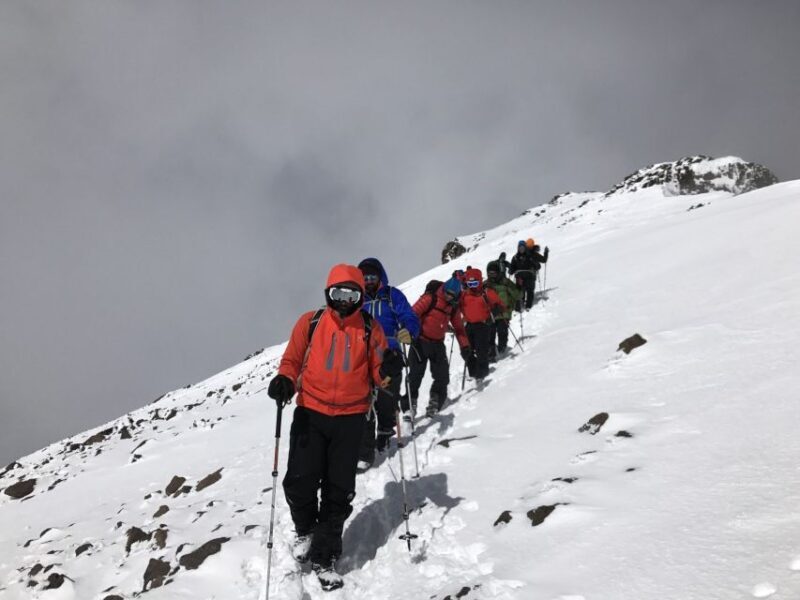
The tour includes hotel pickup and drop-off in Marrakech, which many reviewers find convenient. The drive to Imlil takes around an hour or so, with some reviews describing the transport as comfortable and well-organized. The small group sizes (sometimes only a handful of trekkers) help ensure personalized attention.
Timing is designed for maximum safety and enjoyment. The early start on day two can be challenging, but many say it’s worth the effort for the sunrise views. The total duration of the trek, including the drive, is about two days, making this a suitable option for travelers pressed for time but eager for a mountain adventure.
Practical Tips for a Successful Trek
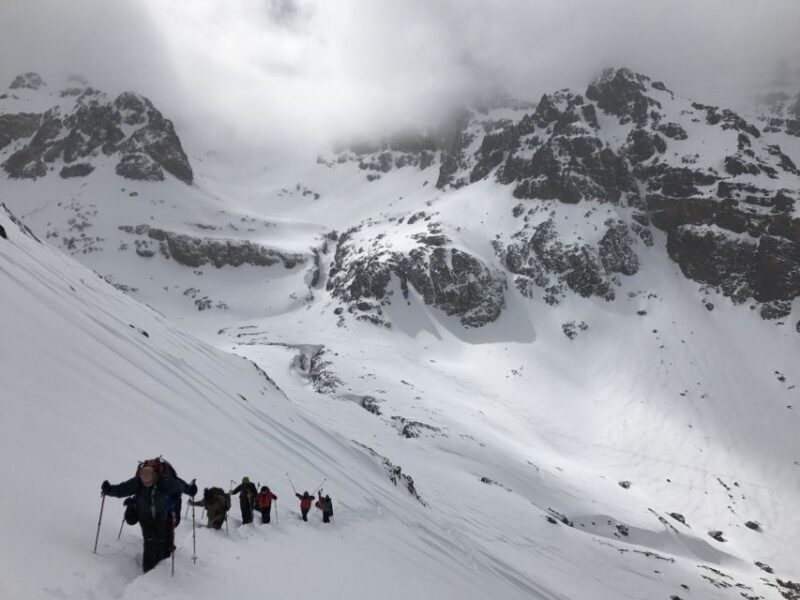
- Bring proper gear: Comfortable hiking shoes, rain gear, a towel, and a sleeping bag are essential. Many reviews mention renting crampons or ice axes if needed, especially from late fall to early spring.
- Prepare physically: While the trek isn’t technically difficult, it’s physically demanding. Good fitness levels will help you enjoy the experience more.
- Pack smart: Light layers for temperature fluctuations are wise — it can be hot during the day and freezing at the summit.
- Cash is king: Small expenses, snacks, or tips may require cash, so bring enough in Moroccan dirhams.
- Respect the environment: Leave no trace and be mindful of local customs, especially at sacred sites like Sidi Chamharouch.
- Safety first: Follow your guide’s instructions, especially when crossing snow or rocky slopes.
Who Is It Best For?
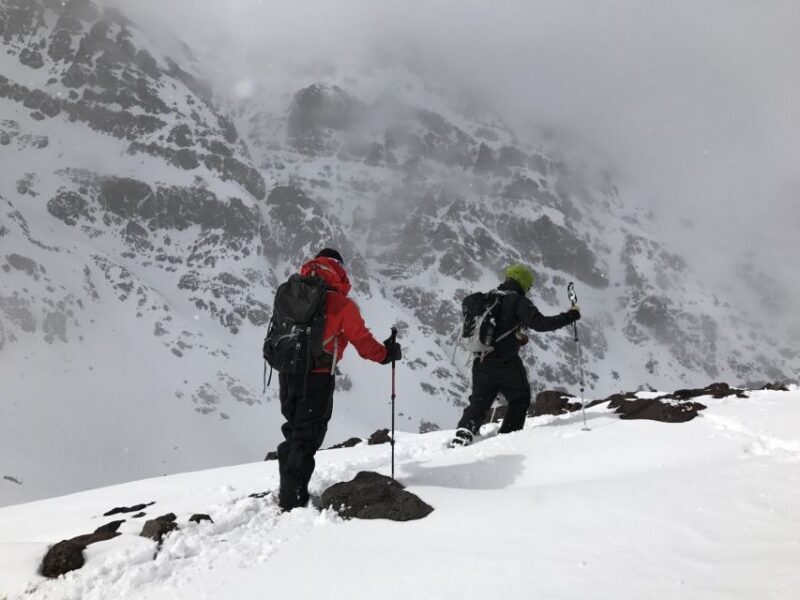
This trek is ideal for adventurous travelers who are physically fit and eager to summit North Africa’s highest peak. It’s perfect if you’re short on time but want a full mountain experience with local guides and authentic Berber hospitality. Not suitable for pregnant women or travelers with mobility issues due to the physical demands and altitude.
FAQ
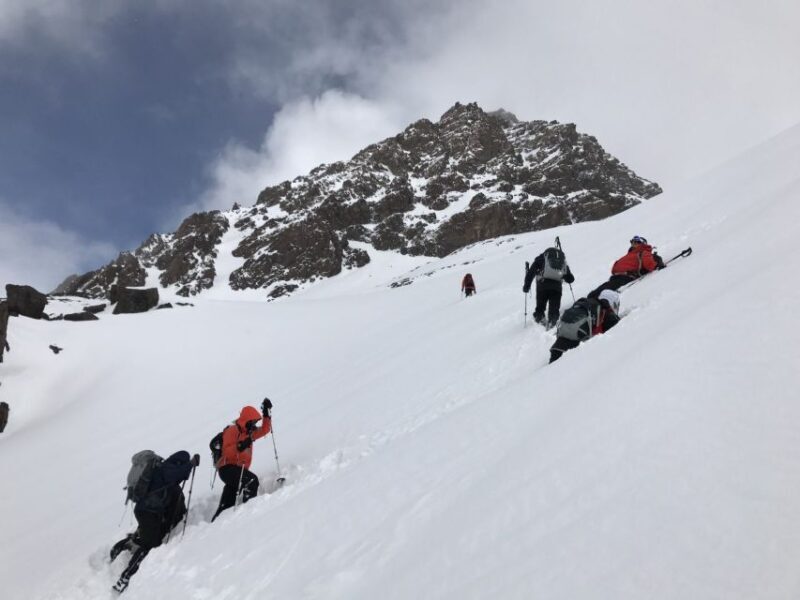
Is this trek suitable for beginners?
While it’s more accessible than technical climbs, it still requires good physical condition and comfort with walking in high-altitude environments. It’s best for keen walkers with some prior experience.
What should I bring?
Comfortable shoes, rain gear, a towel, and a sleeping bag are recommended. You might find renting crampons or an ice axe useful from November to April. Packing warm layers for the summit is essential.
How tough is the ascent?
The climb involves walking over streams, rocks, and snow slopes, but it’s not technically difficult. The main challenge is altitude and stamina.
Are meals included?
Yes, meals are part of the package, typically hearty and simple. Snacks on the way up can be expensive, so bringing extras is a good idea.
What about accommodations?
You’ll stay overnight at the mountain refuge, which is surprisingly comfortable, with hot showers and cozy bedding.
Can I do this trip solo?
Absolutely, many travelers join small groups. The guides are experienced and keep the pace suitable for all participants.
To sum it up, the Mount Toubkal Ascent Express Trek offers a fantastic way to conquer North Africa’s highest peak without needing days or technical climbing experience. The blend of stunning mountain vistas, friendly local guides, and warm Berber hospitality makes this a memorable adventure for those prepared for a physical challenge. Whether you’re dreaming of a sunrise summit or simply want to experience Morocco’s rugged beauty, this trek delivers a genuine, rewarding experience that’s worth every step.
You can check availability for your dates here: